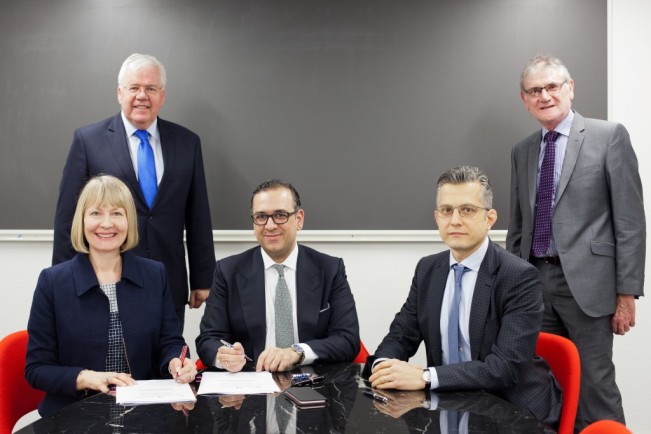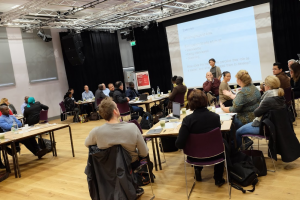Sometimes, the fear of the unknown is more of a hindrance in achieving your end goal. Once you are past this fear and are well informed, it is just a matter of planning your path. Similar is the plight of students who want to study of online but face the fear of the unknown, such as : What is the best way to study online? Should you do an online programme? How to better manage time when learning online? And so on.
These are all questions that we at Robert Kennedy College (RKC) get regularly asked by students looking to join one of our online programmes. Undertaking to do an online master’s degree programme will be an additional commitment to your time and finances, and it is wise to get information beforehand.
Through this continuing series of blog posts, some of our past and current students have shared their experiences, thoughts and opinions and given their feedback on handling some of these choices and situations. Hopefully, this will help you to make an informed decision.

This time we have an alumnus from the York St John University and Robert Kennedy College, MBA Leadership Innovation and Change programme, Peter Cross.
An Introduction
Which Uni are you studying with?
York St John University
Which programme did you choose and why?
MBA Leadership Innovation and Change
The Study Plan
How did you plan to study each module, and what was the reality? For example, how many hours did/do you have to put in each day/or in a week?
I studied minimum twelve hours per week. I work better under pressure.
What part of the day did/do you find most suitable to study? (e.g. early mornings, lunch break, evenings, weekends?)
During the week i.e Monday to Friday I devoted my lunchtime and evenings towards studies. Over the weekend, I generally studied most afternoons and evenings.

How much time did you devote to each assignment?
I had a systematic approach to each assignment and had objectives for the end week but always took advantage of the full time allotted.
Travelling and Communication

How did travelling impact your ability to study?
I commute to work by train. I utilized my time commuting to and from work by train and it really helped early on in my studies.
How were you able to interact with peers and/or professors given the time differences?
The forums were very useful and after the residency, a few of us joined an informal WhatsApp group and became friends outside of the course which continues even now.

Peers were a wonderful source of support. Professors also responded very timely to questions, whilst being the best at stimulating discussion on module’s relevant topics.
A typical day as a master’s student
What does a typical day as an Online Masters’ student look like for you?
Maybe read research papers during commute by train and arrive to office at 9 am. At lunchtime, I leave my desk and go to my favorite reading place in the office. I continue work in afternoon and return to my favorite reading place latest by 6pm for 1-2 hours to read. Then I travel back to home and relax for the evening.
At weekends, I relax with family in the morning. I continued research for at least five hours on Saturday and Sunday during the afternoon and in evening at my favorite reading place at home. I would usually take some time out to be with family.
I was ruthless sticking to this routine, even when we had visitors.
Any advice?
Any advice you have for students to better plan their studies.
Having an environment to read comfortably and uninterrupted is crucial. Find your favorite space at home and around work where you can consistently slip away to study and so that people around you get used to you not being available to them.
Give yourself an opportunity to get into a constructive routine and ensure you love going to your favorite study place, perhaps taking a coffee with you. It makes the difference when studying difficult topics.

A to the point and practical advice by our alumni – go grab a cup of coffee (or tea)! I hope this blog has answered some of your questions, and provided that motivational boost to your academic plans. You can also chat LIVE on WhatsApp with one of our Education Advisors for more information on all the programmes we offer and the application process.













